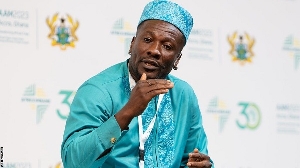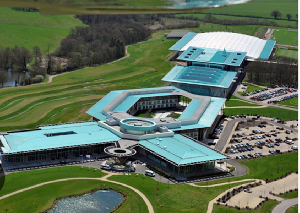Government should consider entering into Public-Private Partnership agreements with the private sector to source COVID-19 vaccines for the general public, the Minority in Parliament have urged.
“The health needs of Ghanaians must remain paramount in all considerations of this government, and failure is not an option. If funding is becoming a challenge for government, it should consider partnering the private sector in a PPP arrangement to source for these vaccines and supply them for the general public,” Kwabena Mintah Akandoh – Ranking Member on the Select Committee on Health in Parliament, said in a meeting with the media.
This comes on the back of the group’s expression of worry at the delay in arrival of vaccines to cover the country’s population as a measure to curb the infection and spread of the virus, as well as prevent a third wave of the virus from hitting the country.
According to the Minority, it is not enough to rely heavily on donor partners to vaccinate Ghanaians, as it raises serious concerns over the capacity and competence of government to deliver on its promises in the fight against the virus; hence the need to deploy several other means to procure the vaccines.
“We therefore urge government to get back to the drawing board and put in place an effective plan that is not highly dependent on one manufacturer, and procure the 17.6 million doses of COVID-19 vaccines in order to meet the president’s June deadline.”
Meanwhile, the group has also expressed particular concern about the delay in arrival of the second doses of vaccines which are expected to be administered to those who took the first jabs.
Mr. Akandoh noted: “Ghanaians were informed that the first dose of COVID-19 vaccines would provide a high level of protection for about eight weeks, by which time another consignment would have arrived to ensure administration of a second jab for persons who had already received the first jab.
“It was expected that the vaccines would have arrived before April 28 so that those who had taken their first jabs could take their second, and those who had not been vaccinated would get the opportunity to be vaccinated.
“However, as we speak, not one additional dose of AstraZeneca vaccine has arrived – putting Ghanaians who had already received the first jab at risk of losing the partial immunity they have acquired through the vaccination,” he added.
According to the Ghana Health Service, a total of 703,752 people have received their first jab of AstraZeneca COVID-19 vaccine to date.
Ghana was the first country in the world to receive 600,000 doses of the AstraZeneca vaccines from the COVAX facility, and an additional 50,000 from the Indian government with MTN also donating 165,000 doses – which saw the country begin mass vaccination on March 2, 2021.
Meanwhile, the 2021 budget estimates made an allocation of US$420million for the procurement of 42 million doses of vaccine targetted at vaccinating 20 million Ghanaians by end of the year.
The Minority has therefore charged government to formulate a clear COVID-19 policy and submit same to Parliament, to guide the implementation of strategies toward the fight against COVID-19.
Click to view details



Business News of Wednesday, 12 May 2021
Source: thebftonline.com

















